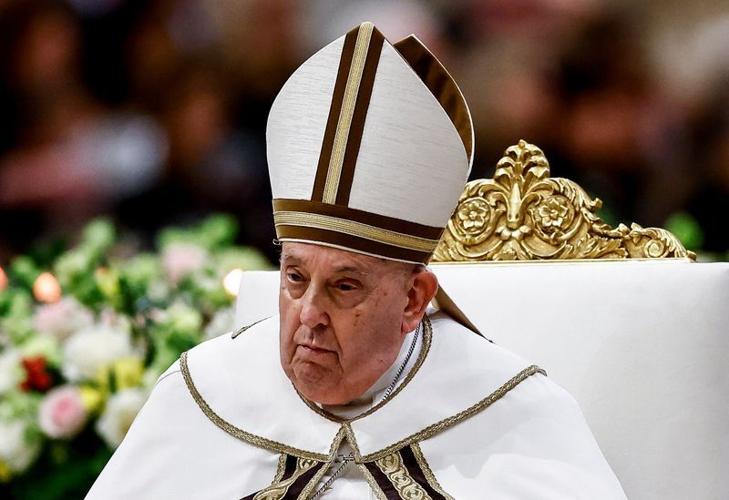VATICAN CITY — Pope Francis has died at age 88 following a cerebral stroke that led to coma and irreversible heart failure, the Vatican confirmed Monday morning. The death of the 266th leader of the Roman Catholic Church marks the end of a historic papacy defined by bold reforms, progressive outreach, and deep polarization.

The Vatican’s chief medical officer, Professor Andrea Arcangeli, issued a formal statement identifying the official cause of death as a stroke resulting in “irreversible cardiocirculatory collapse.” The pontiff passed away at 7:35 a.m. local time at the Domus Sanctae Marthae, the Vatican residence where he had lived since the beginning of his papacy in 2013.
Dr. Arcangeli noted that Pope Francis, born Jorge Mario Bergoglio in Buenos Aires, Argentina, had long suffered from chronic respiratory and cardiovascular conditions, including type 2 diabetes, hypertension, and episodes of acute respiratory failure. The Pope had recently recovered from a 38-day hospitalization earlier this year after developing double pneumonia.
Despite his fragile health, Francis made a surprise appearance on Easter Sunday, blessing a crowd of thousands in St. Peter’s Square and briefly riding through the piazza in his popemobile. It was his final public appearance.
According to the Vatican health department, an electrocardio-anatomical test confirmed his death. A full declaration released by Arcangeli detailed underlying conditions including multimicrobial pneumonia and multiple bronchiectasis, in addition to the stroke and coma that ultimately claimed his life.
Francis, the first Latin American and Jesuit pope, leaves behind a complex legacy. Elected in 2013 after the unprecedented resignation of Pope Benedict XVI, he quickly became a global moral authority, renowned for his humble demeanor and focus on the marginalized. He chose to live in a modest guesthouse rather than the traditional Apostolic Palace and regularly criticized excess within the Church and broader society.
Yet his papacy was not without controversy. His sharp critiques of capitalism, environmental degradation, and Church tradition unsettled many conservatives. His openness to LGBTQ+ Catholics and his firm stance against clerical abuse redefined Catholic leadership for a new era, even as he clashed with traditionalists over issues like liturgy and doctrine.
With Francis’s passing, the Vatican has now entered the traditional mourning and transition period. The College of Cardinals will convene in a conclave within the Sistine Chapel to elect his successor—a process steeped in secrecy, ritual, and global anticipation.
Reaction to Francis’s death has poured in from religious leaders and heads of state around the world. Flags were lowered to half-staff at the Vatican, and St. Peter’s Basilica began preparations for what is expected to be a major public funeral attended by dignitaries from across the globe.
As the world remembers a pope who sought to reshape a centuries-old institution, the Catholic Church now looks ahead to a new chapter—one likely to be influenced by the dramatic and often divisive impact of the late pontiff.



